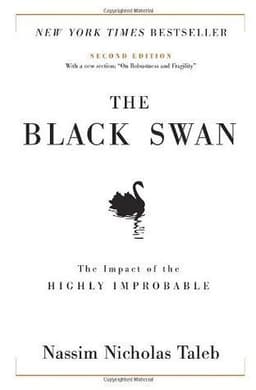
The Black Swan Book Summary
The Impact of the Highly Improbable
Book by Nassim Nicholas Taleb
Summary
The Black Swan is about the extreme impact of rare and unpredictable outlier events, and how we tend to find simplistic explanations for them after the fact, making us blind to randomness and vulnerable to future Black Swans.
Sign in to rate
Average Rating: 2
1. Umberto Eco's Antilibrary
The Black Swan
A Black Swan is an outlier event that carries an extreme impact and is explainable only after the fact. Black Swans are rare, have extreme impact, and are retrospectively predictable.
Examples: the rise of the Internet, World War I, 9/11 attacks
Our minds are not equipped to truly estimate the probabilities of rare events due to biases like narrative fallacy and hindsight bias
Section: 1, Chapter: 1
"It was so unexpected"
"It was so unexpected," we will say. We will spend considerable energy convincing ourselves that it was so unexpected, not foreseeable, and unpredictable. Unpredicted? Yes. Unpredictable? Not necessarily... Our track record in predicting those events is dismal; yet by some mechanism called the hindsight bias we think that we understand them."
Section: 1, Chapter: 1
The Triplet of Opacity
The triplet of opacity describes the three facets that prevent us from grasping the true nature of the world:
1. The illusion of understanding - thinking the world is more understandable than it actually is
2. The retrospective distortion - assessing matters only after the fact
3. The overvaluation of factual information and the handicap of authoritative experts
Section: 1, Chapter: 1
Yevgenia's Black Swan
Yevgenia, an unknown author, gets rejected by publishers initially. She puts her manuscript online where it garners a small following. A small publisher picks it up, and it becomes a runaway bestseller. Her "overnight success" was highly improbable and unpredictable. In hindsight, critics proclaim the inevitability of her new writing style catching on.
Section: 1, Chapter: 2
Beware the Scalable Profession
Avoid professions where success is driven by a single lucky break, as opposed to the slow accumulation of small gains. In scalable professions like acting, singing, writing, a small number of winners takes the lion's share of rewards. Non-scalable professions like dentistry, massage therapy have a more equitable distribution of income. Resist the lure and ego gratification of scalable professions unless you have an extraordinary risk appetite
Section: 1, Chapter: 3
Extremistan vs Mediocristan
The world can be divided into two domains:
Extremistan - Characterized by extreme events, winner-take-all dynamics, and unpredictability. E.g. book sales, sizes of cities, stock markets, deaths in war, terrorist attacks.
Mediocristan - Characterized by predictable averages, physical constraints, and the irrelevance of outliers. E.g. height, weight, calorie consumption.
Section: 1, Chapter: 3
Avoid Tunneling to Predict the Future
When thinking about the future, don't assume that it will be an extension of the present. Unexpected "tunnels" (low-probability, high-impact events) can completely disrupt any forecast.
Example: Trying to predict an entire war from its first few days is likely to fail due to tunneling. The longer the projected timeline, the higher the chances of a tunnel event occurring
Section: 1, Chapter: 4
Disconfirming Evidence > Confirming Evidence
Our natural tendency is to look for instances that confirm our story or beliefs. Disconfirming evidence is often far more relevant for getting closer to the truth.
Example: No amount of white swans can prove the statement "all swans are white", but a single black swan can refute it. Actively seek disconfirming evidence to escape the confirmation bias.
Section: 1, Chapter: 5
The Narrative Fallacy
The narrative fallacy describes our innate tendency to weave past events into coherent, cause-and-effect stories that explain what happened. We have an insatiable appetite for easy-to-digest, packaged, causal explanations, even when reality is far more complex and random. "Splitting brains" experiments show that the left hemisphere of the brain specializes in this kind of pattern-seeking, meaning-making storytelling. The problem is that these stories often give us a distorted, overly deterministic view of the world, blinding us to randomness and the possibility of Black Swans.
Section: 1, Chapter: 6
"Memory is more of a self-serving dynamic revision machine"
"We pull memories along causative lines, revising them involuntarily and unconsciously. We continuously renarrate past events in the light of what appears to make what we think of as logical sense after these events occur... My point is not that memories are flawed (that point has been convincingly made by a cohort of researchers) but that the flaws are not random but designed to overestimate causality."
Section: 1, Chapter: 6
Avoiding the Narrative Fallacy
While it is impossible to eliminate the narrative fallacy entirely, since it is so deeply rooted in our cognition, we can mitigate its effects in a few ways:
- Favor experimentation and experiences over storytelling and anecdotes
- Focus on transformative, empirical experiments rather than just observing history
- When possible, base decisions on data, not subjective recollections or media narratives
- Be wary of the human tendency to fit events into clean narratives, and look for the unseen, untold stories
- Inject some randomness into your life to break narrative monotony, e.g., talk to people outside your circle
Section: 1, Chapter: 6
In pursuit of a positive Black Swan
The protagonist in Yevgenia's favorite novel, The Tartar Steppe by Dino Buzzati, is a perfect embodiment of living in anticipation of a life-changing positive Black Swan. Giovanni Drogo, a young soldier, is posted at a remote frontier garrison called Fort Bastiani. Rather than living his best life, he spends 30 years waiting for the glorious battle that will give his life meaning - the arrival of the ferocious Tartar army from the barren northern steppes. That moment never arrives. "Drogo is among those who wait for the big event that will change their life. He is so focused on it that he does not live."
Section: 1, Chapter: 7
The Sweet Trap of Anticipation
The human brain's reward system is activated more by the anticipation of an uncertain reward than the actual attainment of it. This quirk of neurobiology can lead to the "antechamber of hope" effect, where people:
- Focus on a highly unlikely but life-changing positive event (the "big score")
- Indefinitely delay mundane or intermediate gratification
- Neglect other sources of happiness in their lives
- Experience a quasi-pleasurable state of permanent anticipation, mixed with anxiety and dissatisfaction
- Potentially waste their lives waiting for a breakthrough that never comes
Section: 1, Chapter: 7
Befriend Your Doppelgänger
Find yourself a like-minded community of people who share your outsider ideas, counterintuitive outlook, or unconventional approach to life. Doing so allows you to:
- Build a support network that understands and relates to your situation
- Avoid facing the disapproval of "normal" society alone
- Mutually encourage each other to stay the course and keep taking asymmetric risks
- Maintain a high quality of life even if you never achieve a dramatic positive black swan "Find one person you can trust. And hide plenty of extracurricular activities from others."
Section: 1, Chapter: 7
The Drowned Worshippers
The "silent evidence" problem, as illustrated by Diagoras in one of Cicero's Dialogues, refers to our failure to account for the evidence that is not immediately visible to us. In the anecdote, Diagoras is shown painted tablets of worshippers who prayed and survived a subsequent shipwreck, seemingly demonstrating the power of prayer. He asks, "Where are the pictures of those who prayed, then drowned?" The missing drowned worshippers are the silent evidence. In other words, we tend to draw conclusions from a biased sample - those who survived to tell their story - and neglect alternate stories of those who did not survive.
Section: 1, Chapter: 8
The Silent Evidence
The literary canon is a prime example of the silent evidence effect in action. Out of the hundreds of thousands of books published each decade, only a tiny fraction rise to prominence to become timeless "classics". But this does not necessarily mean that these books are orders of magnitude better than their contemporaries. Thousands of manuscripts of equal quality may have been rejected by publishers, never gained a readership, or literally rotted away - the silent evidence. As a result, we imagine a far more deterministic view of literary success, failing to account for the role of chance, circumstance, and the missing works we cannot see.
Section: 1, Chapter: 8
The Uncertainty of the Nerd
The ludic fallacy refers to the misuse of games, gambling, and probability theory to model real-world phenomena. It occurs when we confuse the clean, tidy, clearly defined randomness found in games of chance with the far more complex, open-ended randomness found in real life. An example is equating the odds of winning a casino roulette spin (where probability can be cleanly defined) with the odds of a real-world event like a war breaking out (where probability is far more intractable). Those who spend too much time in artificial, ludic environments can become "nerds" - people who think explicitly about probability but fail to understand how randomness operates in the real world.
Section: 1, Chapter: 9
A Casino's Biggest Risks
A casino Taleb visited in Las Vegas went to great lengths to statistically model and hedge against gambling-related risks like cheaters or high-roller "whales" getting lucky. But these pale in comparison to the casino's real source of ruin:
- Siegfried and Roy's tiger mauling Roy during a show, costing the casino $100 million
- A disgruntled contractor trying to dynamite the casino
- A kidnapping threat against the casino owner's daughter
- An employee not mailing legally required tax forms, costing millions in fines These highly improbable, uncontrollable, and unquantifiable events represent the far bigger risk to the business - the Black Swans.
Section: 1, Chapter: 9
2. We Just Can't Predict
The Scandal of Prediction
Despite the prevalence of forecasting in domains like economics, business, and politics, the track record of "experts" in these fields is dismal. For instance, economist Edgar Fiedler found that forecasts in a sample missed the mark by an average of 2.4 times the size of changes they were trying to predict. National intelligence agencies have failed to predict nearly every major geopolitical event in the past few decades. And Philip Tetlock's seminal study on expert political forecasts found that they barely outperformed random guesses. The deeper issue is that in complex systems like economies and societies, accurate prediction is essentially impossible due to the sheer volume of interacting variables and the potential for Black Swans.
Section: 2, Chapter: 10
The Expert Problem
The people we often call "experts", especially in domains rife with uncertainty and unpredictability, tend to fall into two categories:
- No-skin-in-the-game experts: People who make forecasts or give advice professionally, but face no personal consequences if they're wrong. Academics, consultants, policy wonks.
- Skin-in-the-game experts: People whose success depends on their understanding of a domain. Pilots, plumbers, carpenters, professional athletes.
As a heuristic, mistrust the first category and pay more attention to the latter. Being accountable to reality tends to hone one's predictive judgment.
Section: 2, Chapter: 10
How to Look for Bird Poop
The philosopher Karl Popper attacked the notion of historicism - the idea that history operates according to fixed laws that allow us to make long-term prophecies about the future of society. Popper argued that in order for such historical predictions to come true, two things would have to hold:
1. Human knowledge would not grow, or would grow in already known ways
2. We could predict today what the new knowledge and technological innovation of tomorrow would look like But the growth of human knowledge is fundamentally unpredictable, driven by occasional "accidental" discoveries and insights (Bird Poop like penicillin or the cosmic background radiation). So we cannot predict the future social and technological conditions that future knowledge will bring about.
Section: 2, Chapter: 11
It's Impossible to Predict the Wheel
Imagine a Stone Age historical thinker trying to predict what society will look like in 1,000 years. To have any hope of getting it right, they would need to be able to envision something like the wheel, and all the second and third order effects the wheel would have on things like agriculture, transportation, trade, and military. "Now, if you can prophesy the invention of the wheel, you already know what a wheel looks like, and thus you already know how to build a wheel, so you are already on your way." The same thing goes for any modern thinker trying to predict what society or technology will look like in 50 or 100 years. To predict the internet and smartphones in 1920 you would have to already understand the basic principles and components behind them.
Section: 2, Chapter: 11
Epistemocracy, a Dream
We tend to look at history through a deterministic lens, imagining that past observers had a reasonably clear view of what was to come. When we read about the Industrial Revolution in textbooks, it seems almost inevitable. Yet for people living through it, the changes were far less predictable and obvious. Similarly, when we look back from the vantage point of the present, key technologies like the internet and smartphones may seem like clear inevitabilities. But wind the clock back a few decades and their future necessity and ubiquity would have been far harder to forecast. The problem is that "the relationship between the past and future does not resemble the difference between the past and the past previous to it."
Section: 2, Chapter: 12
A Fool in the Right Places
Since epistemological certainty is impossible, we must learn to act decisively in the face of an uncertain future. Taleb suggests adopting a barbell strategy for prediction:
- Make very few, if any, truly life-altering predictions (career path, spouse, etc.)
- For matters of minor impact, feel free to guess and predict away! The idea is to stake significant actions only on things you are extremely confident about, but to embrace frequent, small errors when the cost is limited. "Do not be ashamed of that. Do not try to always withhold judgment—opinions are the stuff of life. Do not try to avoid predicting—yes, after this diatribe about prediction I am not urging you to stop being a fool. Just be a fool in the right places."
Section: 2, Chapter: 12
Beware the Philosopher Bureaucrat
"People can't predict how long they will be happy with recently acquired objects, how long their marriages will last, how their new jobs will turn out, yet it's subatomic particles that they cite as "limits of prediction." They're ignoring a mammoth standing in front of them in favor of matter that only the most powerful microscopes in the world can reveal to us. Our track record in predicting the future in socioeconomic life is extremely poor, yet we live under the illusion of control."
Section: 1, Chapter: 12
What Do You Do if You Cannot Predict?
In a complex world filled with chance and uncertainty, we must learn to embrace opportunities as they present themselves. The reasoning is:
- Opportunities are by definition rare and fleeting
- We can't predict when or how they will arise
- The cost of missing a great opportunity can be enormous So even if an opportunity seems only mildly promising, the asymmetry between the upside of seizing it and the downside of missing it entirely means we should lean towards saying yes. "Collect opportunities on a large scale... maximizing the serendipity around you." Of course, this doesn't mean saying yes to everything. But it does mean becoming less picky, less analytical, and more open to trying new things, meeting new people, and exploring uncharted terrain.
Section: 2, Chapter: 13
Trial and Error Beats Grand Planning
The phenomenal success of the US in innovation and economic growth can be largely attributed to its enthusiastic culture of trial, error, and unplanned tinkering:
"The reason free markets work is because they allow people to be lucky, thanks to aggressive trial and error, not by giving rewards or "incentives" for skill. The strategy is, then, to tinker as much as possible and try to collect as many Black Swan opportunities as you can."
Compare this to the central planning approach of the Soviet Union or Maoist China. By allowing and even encouraging small-scale failure, you increase the chances of large-scale success. The entrepreneur who goes bankrupt four times before hitting it big would never emerge in a system where a single failure dooms you.
Section: 2, Chapter: 13
3. Those Gray Swans of Extremistan
The World Is Increasingly Moving To Extremistan
The world is becoming more unequal and unfair, moving deeper into Extremistan rather than Mediocristan. In Extremistan environments, a few people/entities reap a disproportionate share of rewards (wealth, success, fame, influence etc.). This results in extreme inequality, compared to the more even distributions seen in Mediocristan
One factor driving this shift is scalability and globalization - successful businesses/people can scale up rapidly and accrue outsized gains. Another factor is the "Matthew effect" where early success breeds more success in a positive feedback loop.
Section: 3, Chapter: 14
Beware Of Linear Models
Many economic and social science models use Gaussian/normal distributions and linear equations. However, real-world phenomena often exhibit non-linear, scalable behaviors that defy neat models.
Relying on such models can lead to massive underestimation of real risks and probabilities.
- For decisions involving uncertainty, avoid being seduced by precise equations - stay open to non-linear effects.
- Focus on the consequences of events, rather than trying to precisely model their probabilities
Section: 3, Chapter: 15
Mandelbrot and The Geometry Of Nature's Roughness
Traditional Euclidean geometry deals with smooth, ideal shapes like lines, triangles, circles etc. However, the shapes seen in nature (mountains, coastlines, trees etc.) are rough and jagged.
Mandelbrot discovered fractal geometry to describe this roughness mathematically. Fractal shapes exhibit self-similarity - they look "the same" at different scales. Many natural and man-made phenomena exhibit fractal properties. Financial markets also display fractal behaviors, with similar patterns at different time scales
Section: 3, Chapter: 16
The Flaws Of The Uncertainty Principle
The Uncertainty Principle in quantum physics is often misinterpreted and used to justify claims about unknowability.
However:
- The uncertainties in QM are miniscule and average out for any macro object, so QM uncertainties don't actually impact predictions in real life
- In contrast, uncertainties in society, economics, politics etc. are massively impactful
- It's a red herring to use QM to say "there are limits to knowledge" and ignore real unpredictability
- If someone cites the Uncertainty Principle to discuss real-world uncertainty, they are likely a fraud
Section: 3, Chapter: 18
Philosophers Focus on the Esoteric
Many modern philosophers discuss abstruse, impractical topics detached from reality. They can doubt everything in theory, but don't apply skepticism to practical life issues. Some blindly trust "experts" on topics like finance, politics, despite doubting their own senses. Philosophers should focus more on real-world issues and bringing skepticism to bear on them. As Karl Popper said, "Genuine philosophical problems are always rooted outside philosophy".
Section: 3, Chapter: 18
Related Content
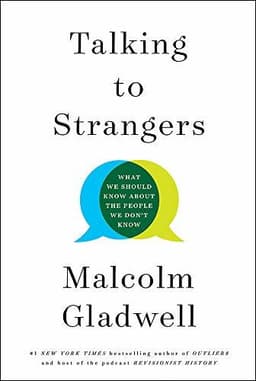
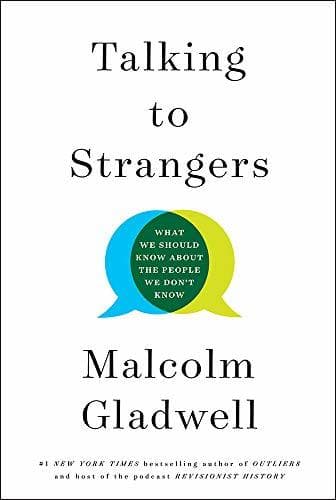
Talking to Strangers Book Summary
Malcolm Gladwell
In "Talking to Strangers," Malcolm Gladwell argues that our natural instincts are ill-suited for a world of frequent stranger interactions. Through case studies and research, he reveals how misguided assumptions lead to disastrous misunderstandings and offers insights on more thoughtful engagement.
In "Talking to Strangers," Malcolm Gladwell argues that our natural instincts are ill-suited for a world of frequent stranger interactions. Through case studies and research, he reveals how misguided assumptions lead to disastrous misunderstandings and offers insights on more thoughtful engagement.
Psychology
Communication
Sociology
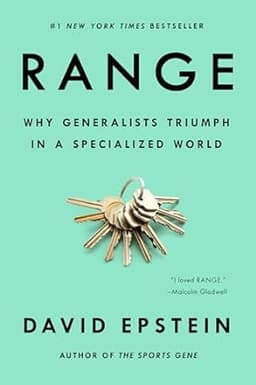
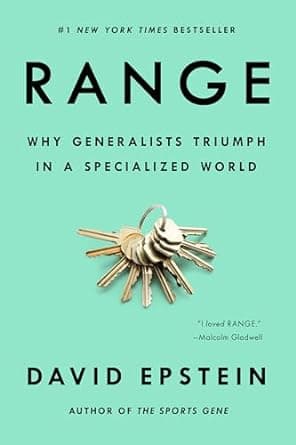
Range Book Summary
David Epstein
"Range" challenges the conventional wisdom that early specialization is the key to success. Instead, Epstein argues that in our increasingly complex and unpredictable world, it is those with broad experience and diverse skills who are best equipped to thrive.
"Range" challenges the conventional wisdom that early specialization is the key to success. Instead, Epstein argues that in our increasingly complex and unpredictable world, it is those with broad experience and diverse skills who are best equipped to thrive.
Personal Development
Learning
Psychology
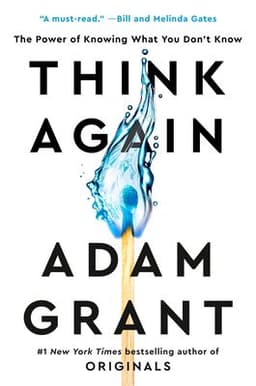
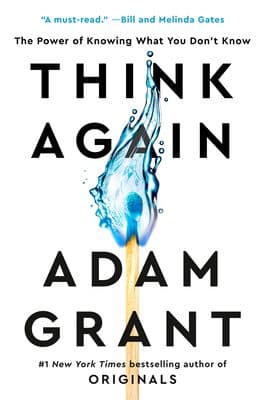
Think Again Book Summary
Adam Grant
Think Again is a compelling exploration of the power of knowing what you don't know, and how embracing the joy of being wrong and actively questioning your opinions can help you make better decisions
Think Again is a compelling exploration of the power of knowing what you don't know, and how embracing the joy of being wrong and actively questioning your opinions can help you make better decisions
Psychology
Business
Personal Development

